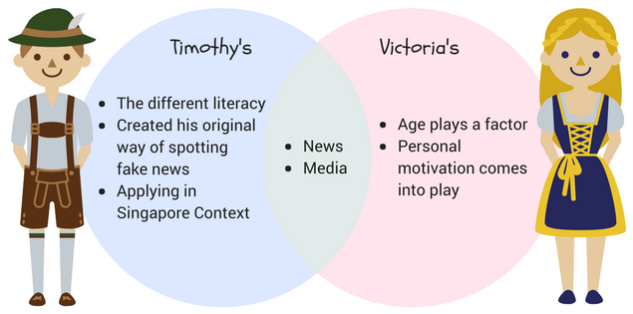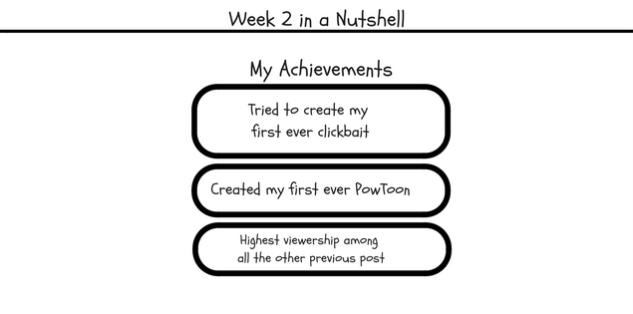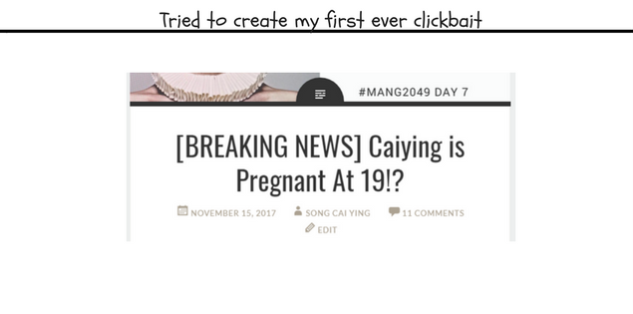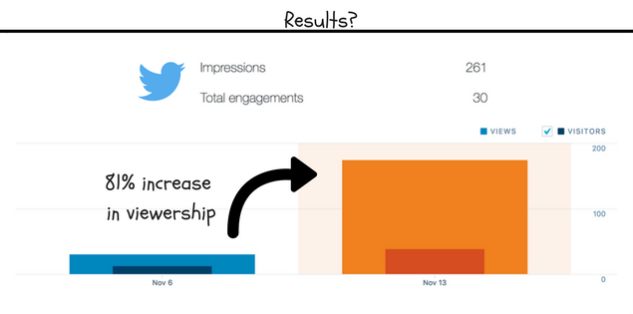Does setting up a clickbait equals to lying?
This week, I came across Timothy’s and Victoria’s blog. Presenting 2 different approaches to the same topic. Timothy applied the theories on to himself and explained using local context. Victoria also uses herself as an example but instead of theories, she explained that age and personal motivation comes into play when assessing sources.
Both perspectives led to a discussion of fake news and unreliable media. Maybe this is something we could expand on, like how unreliable sources (research papers on Google Scholar) could affect our education.

I have also come across many posts talking about how to overcome filter bubbles, there was 1 particularly interesting way that I read on Mooc by Nic! Confusing the algorithm by random searches?!

Week 2 in a glance, I tried new things and achieved things I have never achieved before.


So how did my clickbait go? Honestly, it could be so much better as some of my friends pointed out that I should ‘GO BIG or GO HOME,’ if I would to do it again, I will perfect the clickbait to achieve optimal results. But look at the figures I managed to gain!

My thoughts on clickbait, it is not always FAKE news but more like a ‘TRAP’ to lure people into your article to increase viewership/engagement. From a marketing point of view, it is totally okay if it doesn’t cause any issues (political, legal……) but from a consumer point of view, it may be a negative thing and people might feel cheated.
In conclusion, click baits aren’t necessarily a bad thing. But unreliable sources are bad, they provide you with inaccurate information that sways thoughts even on massive issues like elections! Before you hit the ‘Share’ button, be sure to check your sources!
That’s all for now, Earthlings!
Caiying x
(270 words)
